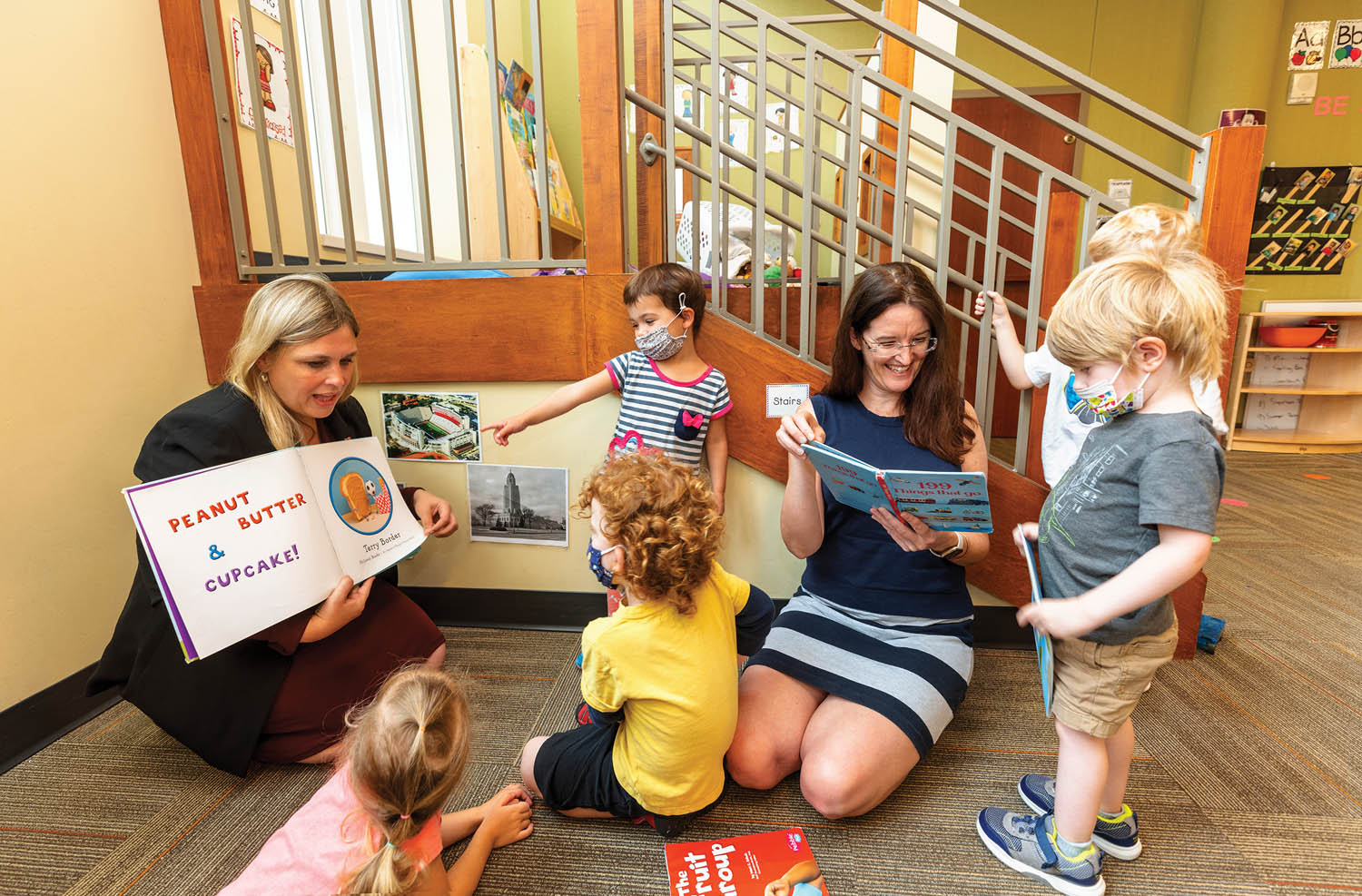A restless child has trouble napping at preschool and seeks his teacher’s attention. Two preschoolers battle over a toy in a busy classroom, sparking a conflict that ends in hitting or crying.
Countless similar scenarios unfold daily at child care centers nationwide, which enroll more than 60% of 3- to 5-year-olds in the U.S. How early childhood educators model self-regulation in the face of these daily stressors helps to shape children’s ability to manage their thoughts and behavior – a critical skill linked to long-term well-being.
Carrie Clark and Holly Hatton-Bowers lead a team of Nebraska researchers working to support teachers in better managing their response to stress. They hope to develop techniques that enhance teachers’ ability to regulate their emotions and stay attuned to students’ needs, key components of high-quality early childhood education.
“We know from the research that children who are able to manage their own behavior – by stopping themselves from being impulsive or by identifying and managing emotions, for example – seem to do better in terms of social relationships, academic achievement and well-being across the lifespan,” said Clark, assistant professor of educational psychology. “Teachers play a really big role in scaffolding that skill.”
Hatton-Bowers, assistant professor of child, youth and family studies, said this study may inform efforts to implement biofeedback interventions promoting the use of deep breathing or other mindfulness strategies, such as an app that detects increased heart rate. Researchers are collecting survey and real-time physiological data from about 80 Nebraska preschool teachers to explore the interplay between perceived stress and its physical biomarkers.
We know from the research that children who are able to manage their own behavior – by stopping themselves from being impulsive or by identifying and managing emotions, for example – seem to do better in terms of social relationships, academic achievement and well-being across the lifespan.
Carrie Clark
This novel study collects physiological data, such as heart rate variability and levels of stress markers like cortisol, C-reactive protein and alpha amylase, while teachers are at work in the classroom – not in the laboratory.
It’s also distinctive for exploring how these classroom factors combine with a child’s family environment to contribute to children’s self-regulation capacity.
“Sometimes researchers isolate parenting and family-level factors as if they’re completely separate,” Clark said. “It’s exciting that this model accounts for both of these factors.”
The National Institutes of Health’s National Institute of Child Health and Human Development supports this research.
+ Additional content for Helping Preschool Teachers Better Manage Stress
Nebraska news release: Interdisciplinary study leverages technology to assess preschool teachers’ resilience

